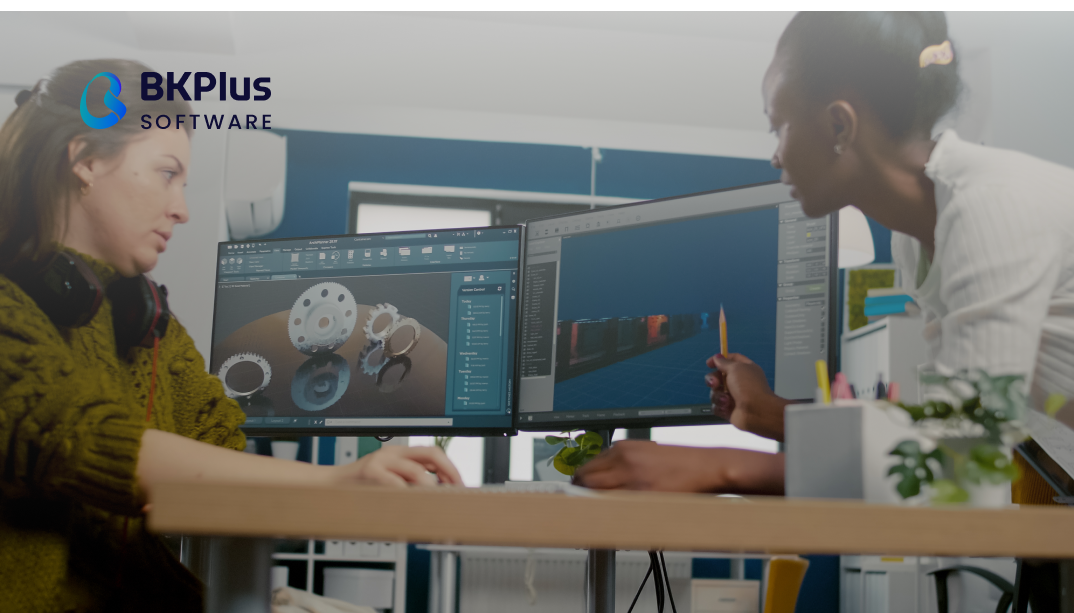Businesses are increasingly utilizing and expanding their technical activity to keep up with the pace of digital transformation, provide a competitive edge, streamline operations, and reduce operational costs. R&D in software development is transforming the capabilities of the information technology industry. Let’s find out more about the role of R&D in the software development industry.
What is Research and Development (R&D)?
In software development, Research and Development (R&D) refers to systematically investigating new technologies, methodologies, and approaches. It focuses on enhancing existing software products or creating innovative solutions.
By exploring cutting-edge technologies, algorithms, programming languages, and frameworks, R&D aims to address specific challenges or meet evolving user needs.R&D aims to enhance existing products and explore breakthrough innovations, often leading to new market opportunities and technological advancements in the long term.
Importance of R&D in Software Development
The launch of new software products is hitting the market each day. As a result, the competition is becoming tougher. Hence, spending on software development R&D can allow enterprises to gain a competitive advantage that their competitors can play catch up to.
Development of New and Innovative Products
The data obtained during the research and development phase generates novel strategies and improves or modifies current products and internal and external business processes. To keep your business current, R&D researchers follow the developments in your market and work with you to incorporate them into your apps (web & mobile). Additionally, the team continually considers potential customer needs and emerging trends when developing products.

Improves Customer Engagement
R&D experts decide which app features are essential, which features to bring in, and which features to do away with. Experts conduct a range of analyses on users: One-on-one interviews, focus groups, ethnographic studies, etc., are examples of qualitative research. Experiments, surveys, observations, and other quantitative methods are examples of qualitative research.
The characteristics of your product and the issue it resolves will determine the user research methodology you choose. This stage assists you in realizing the objectives, requirements, preferences, and demands of your consumers.
Makes You More Competitive
The R&D team carefully examines your competitors to develop a successful product. They evaluate and contrast the products currently available on the market to find their strengths and drawbacks. With the help of this analysis, you can decide how to develop a unique product that can set you apart from other businesses in your sector and boost your market share.
Discovers the Costs
Adding a research and development phase in your software development process enables you to get an evaluation of the budget at the initial stage. Researchers assist in developing product requirements, examining the development team, compiling data about your company, and discovering new working techniques.
Experts analyze each development idea and determine if spending the funds on it is worthwhile based on the data they have collected. With this method, you can receive optimization while avoiding extra costs.
Saves Your Time
Undoubtedly, R&D is time-consuming and needs much patience. However, the information or data collected can allow the development team to walk along the right development path. It helps you to overcome unnecessary wastage of time and tasks needed to build a product.
Hence, the R&D stage in software product development does count because it allows you to explore ideas and the best solutions to help you take a leading position in the market.
Types of R&D in Software Development
R&D is essential for enhancing software solutions by aligning requirements with evolving user needs. Teams follow a structured product development lifecycle, focusing on quality, performance, and feature integration based on user feedback.
Organizations employing R&D exhibit dedication to ongoing improvement, ensuring their software remains competitive and user-centric.
Fundamental Research
Basic research delves into the core principles of software development, free from immediate commercial objectives. Its primary goal is to expand human understanding, rather than address specific practical issues. Fueled by curiosity, it explores scientific concepts and phenomena, prioritizing theoretical exploration over practical application.
Indeed, basic research often leads to groundbreaking discoveries essential for future innovation. Businesses can harness external expertise and foster innovation by partnering with research institutions or investing in startups.

These collaborative efforts promote knowledge exchange and accelerate technological advancements. Ultimately, they drive organizational growth and provide a competitive edge.
Applied Research
Applied research, a crucial aspect of research and development, involves utilizing scientific knowledge to address practical issues and innovate solutions. Its characteristics include a problem-solving focus, practical application, and industry collaboration.
Applied research drives innovation, enhances competitiveness, and informs market strategies. By investing in applied research, businesses gain insights, develop products, and improve performance.
Three types of applied research include action research, which solves immediate issues; evaluation research, which measures project success; and R&D, which gathers knowledge for new product development.
Experimental Development Research
Experimental Development is a crucial stage in the innovation process where research findings are applied to create or improve products or services. While distinct from product development, it’s an essential component, focusing on testing specific applications to drive product advancement.
This process is particularly prevalent in high-tech industries like biotechnology and software, where innovation and competitiveness are paramount. Successful experimental development can lead to intellectual property protection, enhanced brand reputation, and increased profitability, enabling businesses to maintain a competitive edge in rapidly evolving markets.
Conclusion
R&D is a crucial part of the successful development of software products. It drives innovation, improves quality, and ensures that products remain relevant in a changing technological landscape. While challenges may arise, the potential that comes from greater product success and accelerated business growth makes R&D an essential investment.
Partner with BKPlus Software to harness the transformative power of R&D for your software development efforts. Our team of experts specializes in delivering innovative, high-quality solutions that move your business forward.



